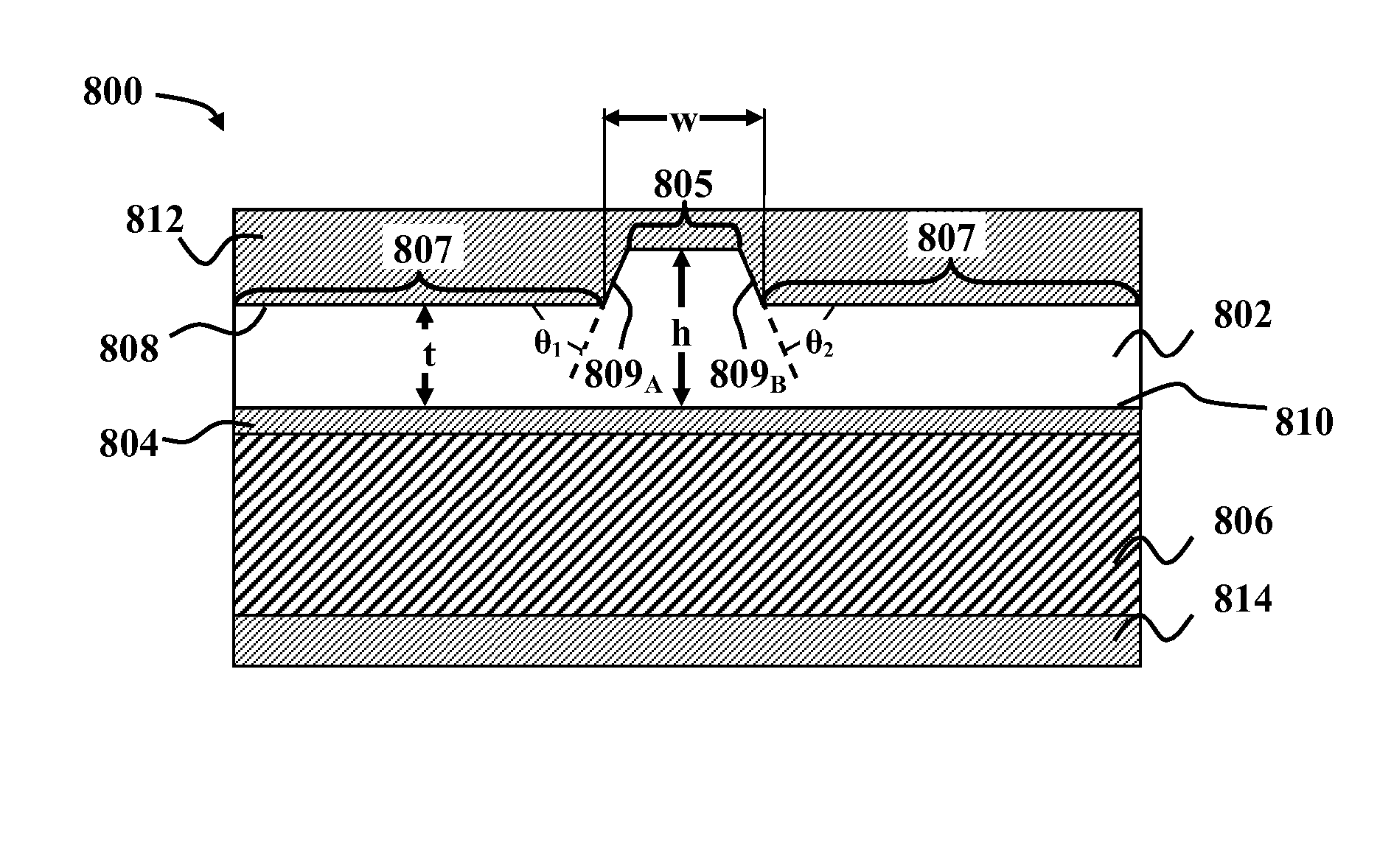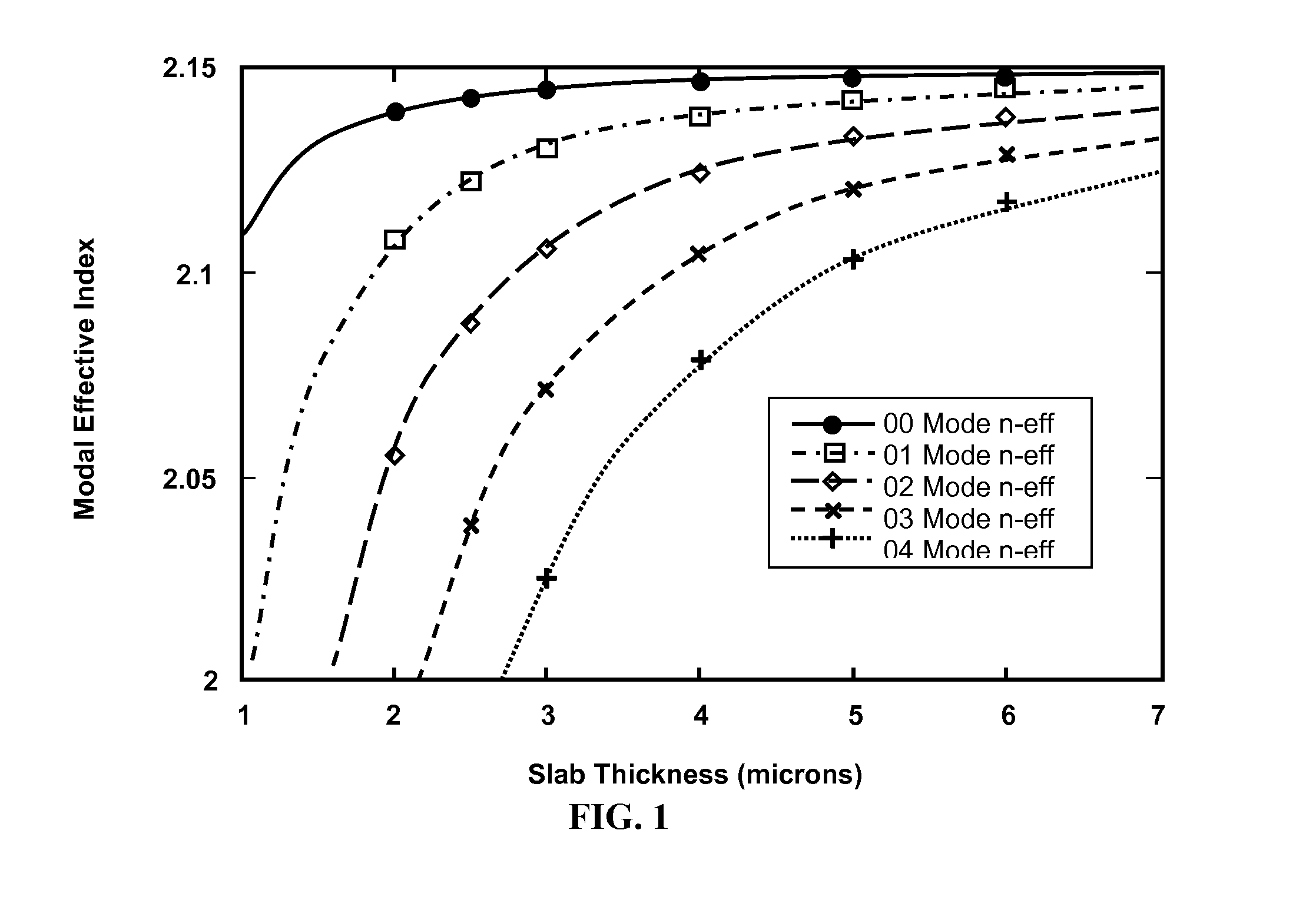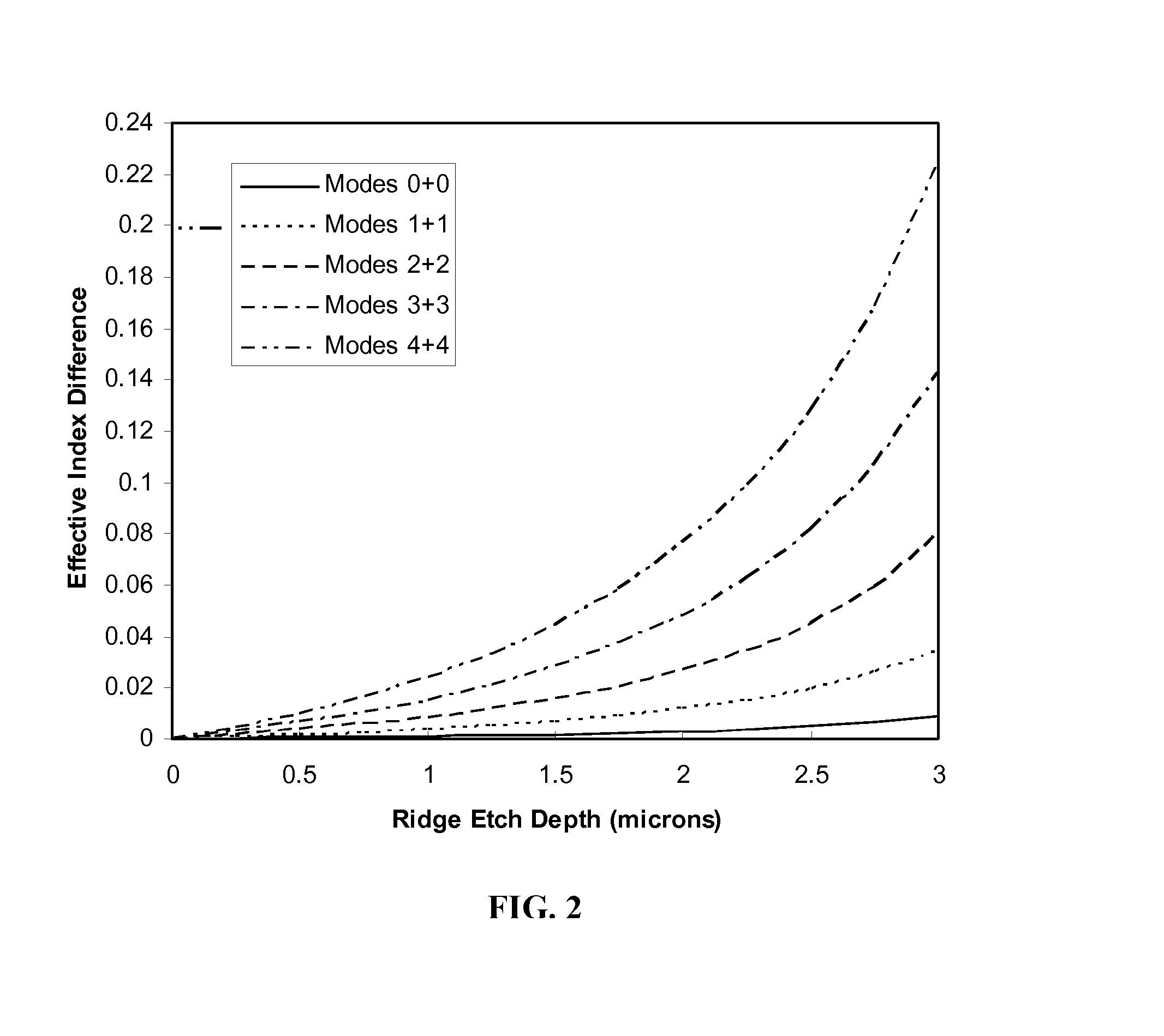Efficient nonlinear optical waveguide using single-mode, high v-number structure
a nonlinear, high-v-number technology, applied in the field of optical waveguides, can solve the problems of inability to achieve single-modedness over wide wavelength ranges, inefficient, and difficult design devices, and achieve the effect of increasing the number of vertical high-order modes, simplifying the presentation, and high loss
- Summary
- Abstract
- Description
- Claims
- Application Information
AI Technical Summary
Benefits of technology
Problems solved by technology
Method used
Image
Examples
examples
[0111] In embodiments of the present invention most instructive parameters for detailed numerical study are primarily the etch depth (h-t) of the ridge 805 and, secondarily, the ridge width w. To demonstrate onset of various high-order modes, with respect to ridge etch depth, a nominal design (5-um core thickness, SLT core layer 802, SiO2 cladding) with a wider-than-optimal (for the 920-nm wavelength chosen) ridge width of 5 microns is simulated. This wide ridge increased the number of vertical high-order modes present. Once an optimal range for ridge etch depths was determined, the ridge width was varied to demonstrate that various vertical high-order modes could be cut-off by sufficiently reducing the lateral V# via narrowing the ridge width. Rather than impose an application-specific criterion for considering a mode to be guided or not guided, the propagation loss was numerically calculated for the guided fundamental mode (zero loss) and for a group of lower-order guided or quasi...
PUM
 Login to View More
Login to View More Abstract
Description
Claims
Application Information
 Login to View More
Login to View More - R&D
- Intellectual Property
- Life Sciences
- Materials
- Tech Scout
- Unparalleled Data Quality
- Higher Quality Content
- 60% Fewer Hallucinations
Browse by: Latest US Patents, China's latest patents, Technical Efficacy Thesaurus, Application Domain, Technology Topic, Popular Technical Reports.
© 2025 PatSnap. All rights reserved.Legal|Privacy policy|Modern Slavery Act Transparency Statement|Sitemap|About US| Contact US: help@patsnap.com



